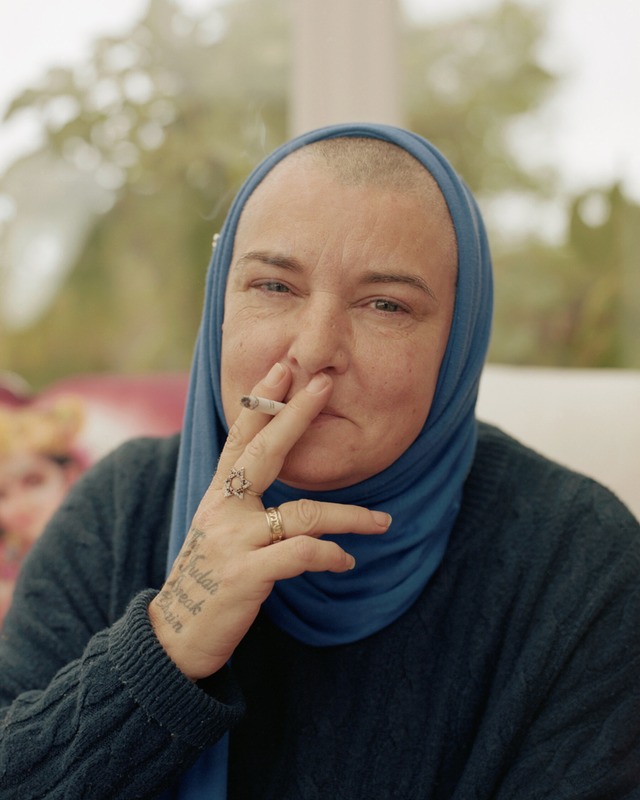KEEPING A DIARY
In Rememberings she says:
'Please be aware that every album represents a diary and each song is a chapter in that diary. And my collection of albums represents my healing journey. When I was younger, I wrote from a place of pain, because I needed to get things off my chest. Once I came to the Theology album, which is all Scripture, I worked from a place of healing. And the first album I wrote totally from that platform is I’m Not Bossy, I’m the Boss. And it is from that platform I continue to write. After all, there is no point setting out on a healing journey if you’re not going to find yourself healed.'
So I think there is a logic in stopping here. She did as it happens have to go through a whole new bout of pain when, in 2015, she had a hysterectomy: 'I'd had to have the surgery because I had chronic endometriosis. I didn't actually need my ovaries taken out too. The doctor just decided he "might as well" whip them out.' The result was a 'total breakdown', a period of a couple of years when she disappeared from public view and was obsessed with suicidal thoughts. She says that this explains the imbalance in Rememberings. She had already, prior to 2015, written about the events leading up to Saturday Night Live - her childhood, the relationship with her parents, her discovery of the Rastafari. After 2015 her memory was shot to pieces, hence the more perfunctory account of events from 1992 to 2015.
It was in 2018 that she converted - she would say 'reverted' - to Islam. I do not think for a moment that this can be 'explained' by the consequences of her hysterectomy but they do provide the context in which it occurred. As she says towards the end of Rememberings 'trouble is only God in disguise.'
For what it's worth I think I can see two things that might have drawn her to Islam. The first is the theological simplicity of it. Sunni Islam at its most basic posits a very simple two way relationship between God and Man (which in this context should be recognised as a non-gender specific term, better than 'humanity' or 'the individual person' because it refers to the universal humanity of the individual). And that is the theme of all her religiously orientated songs. The second thing that might have attracted her is the hijab. In a television interview which can be seen on Youtube she says she isn't a very devout Muslim, she doesn't say her five daily prayers, but she does always wear the hijab. Describing her time in hospital following her breakdown she talks about an old Vietnam veteran who is 'utterly bewildered but still waits every day for me because he never saw a heterosexual woman with no hair before. He doesn't realise I'm actually asexual.' The hijab would be a better protection than a shaven head against the sexual tension which obviously surrounded her all her life.
So I don't think the 'reversion' to Islam, or even the hysterectomy, alters the fact that she'd reached her 'place of healing' with Theology.
I've written this article because I consider Sinéad O'Connor's career to be an important event in Irish religious history. It is the story of a woman with a strong religious sensibility living through the period when the credibility of the Irish church collapsed. It's important to stress that the incident of tearing up the photograph of John Paul II occurred before it became easy (all too easy) to attack the church or to call out clerical child abuse. She was right at the beginning of that particular process and at the time the general assumption was that she had wrecked her career. What is remarkable about her (apart from the wonderful voice and stage presence) is the extent to which her career has been pushed by deeply felt necessity rather than calculation. She isn't, thank God, a clever person (unlike, for example, Bob Geldorf or Bono). And she obviously loved the church as much as she hated it - you only have to hear her singing 'Regina Caeli' (on the compilation album She who dwells in the shelter of the most high) or, on a radio programme available on Youtube, 'Veni Emmanuel' to be sure of that. Similarly with her mother and similarly with Ireland (she rarely has a kind word to say about Ireland but she couldn't have recorded Sean-Nós Nua if she didn't love it).
In this conflict with the church I'm not declaring her to be right and the church to be wrong. I'm not taking sides. But I would suggest that if religion is to survive in Ireland - and so far as I'm concerned that means if a worthwhile Irish culture is to survive in Ireland - some sort of accommodation between the two sides will have to be found.
